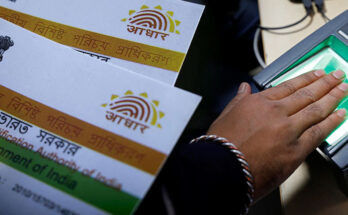Changing trend of digital era love-relations. Image Courtesy – http://www.theguardian.com
Younger people of the present days are called digital people who have grown up interacting with computers, mobiles, laptops and internet. This group belongs to people around 13 to 30. Researchers, who are studying on society, people, relationship, love and sex, behaviour etc. have observed some basic differences between younger people of the present and younger people of the past.
Researchers observed that almost 70% of the teenagers use technology for interpersonal connection. A huge number of young people are attached to social media and they log in to these sites even more than once per day, and even more than 10 times per day. Some younger people keep them attach to some social media for 24 hours. Younger people today are more proficient to communicate themselves through text. There are a number of ways which support them texting like WhatsApp, Hike, Hangout etc.
There are also various websites which support unlimited or free messaging like ‘160by2’, ‘Way2SMS’, ‘FullOnSMS’, ‘Ultoo’, ‘Site2SMS’, ‘A Free SMS’, ‘Indyarocks Free SMS’, ‘SMS Fi’, ‘Use2Sms’, ‘YouMint.com’ etc. So texting has now become the prime mode of daily communication of younger people. Even they avoid emailing, phone call and face-to-face meeting sometimes. They choose to be in virtual world and in this way they try to control their social interactions.
Technology attachment has adversely affected young population all over the world. Today’s generation are addicted with texting, tweeting, blogging, online chatting, emailing, watching sporting events rather than their physical involvement with games and sports and other social meetings. They are deviating from developing healthy romantic and sexual partnership. As far as romanticism is concerned, brains of present young people are filled with a demand of high level of physiological stimulation, novelty, excitement, arousal etc. – the result is they are out of synchronization with the love and romance of real world.
One of the factors for this new psychological behaviour of this era might be the availability of online pornography. Young fellows are not in a state of harmony with their partners, they might really be losing enthusiasm for those partners! Various studies demonstrate that a reliable example of porn use can bring about both short-term and long-term abnormality in sexuality and intimacy. Various studies revealed that an expanding percentage of young high tech people were literally disinterested, and even turned off by “in the flesh” sex.
Read: Changing trend of modern relationships
According to studies made on 1500 pairs in Japan, the quantity of teenager and youthful grown-up guys who have no hobby or an out and out abhorrence for having intercourse with someone else roughly multiplied from 2008 to 2010. Ascending from 17.5% to 36.1% in guys matured 16-19, and 11.8% to 21.5% among guys matured 20-24. The trend of increasing absence of enthusiasm for ‘real-world’ sex concurs with the present “sexnology blast” has promoted internet pornography and virtual sexual experiences more accessible, cheaper as well as more suggestive and alluring. As a result of this, genuine partners are losing real love and battle with virtual partners.
Obviously, young fellows are less energized than their antecedents about traditional sexual conduct, also traditional closeness and responsibilities. Modern younger people are not interested in long-term romanticisms, relationships, marriage, fatherhood being the head of their family.
Not only the changes have happen to young men, but the technology has made its watermark to the generation of young women also. Several researches revealed that younger females are more accustomed with porn. Porn acknowledgment by ladies decidedly corresponds with a wish for later marriage, during a period when both partners in the marriage are monetarily self-sufficient.
It is a fact that young women of this technology era are more ambitious than their male partners to earn more. They substitute their late marriage with short term sexual relationships or romantic relationships which do not interfere with their career. They somehow manage their sexual lust with masturbating to internet pornography or with casual “hookup” sex etc. In her book “The End of Men: And the Rise of Women”, Hanna Rosin has written on society about the dominance of females in the schools and offices of US.
In spite of the fact that exploration about youngsters’ state of mind toward easygoing sex may persuade that children today are having significantly more sex than their guardians were at the same age; but that is not the situation. In reality, most research demonstrates the quantity of youngsters engaging in sexual relations is really dropping. For more established older generation, sex was considered as the essence that united and held together long lasting relationships.
Read: Metamorphosis, in the form of Cosmopolitan Manliness created disproportion in the society
The society of today no more holds the institution of marriage in high regard or priority. But once upon a time the institution of marriage had a high value. A research has shown that 44% of the computer intelligent young people especially men and 43% of young women view the institution of marriage as old-fashioned. Statistics show that 26% of men and women in their twenties got married in the year 2008, contrasted with the year 1960 when 68% of the young people of the same age category got married. In the year 1960, 72% among all adults got married, while in the year 2008, only 52% of the adult population got married. It has clearly defined that necessity and urgency of marriage is decreasing day by day.
Nowadays, monogamous relationships are considered by internet literate young people as what you lose instead or what you gain. Monogamy is seen by some as a limitation on ‘personal freedom’, including the flexibility to do what you need, when you need, by means of the Internet. What we are finding is numerous technology-bound young people would preferably live in an online sexual wonderland than settle down into the traditional, long lasting monogamous relationships favoured by their guardians in the past.
Large portions of these youngsters are shunning certifiable, long term closeness, leaning toward rather a universe of virtual sex and easygoing ‘in-person hookups’, after all temporary relationships. These relationships present them with less emotional pressures, less involvements and a more prominent feeling of control.
Considered that it is human instinct to look for more refined happiness, and if the most pleasurable sexual and romantic encounters are passing, regularly changing include a PC or cell phone instead of a genuine person, then no problem for it. Obviously, the coming tech-era will be a crucial journey – especially the parameters like love, relationship, sex, responsibility will matter a great.





